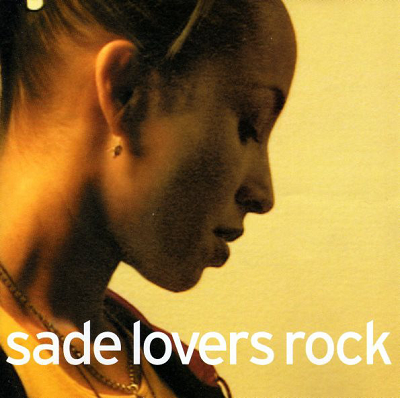5. SadeLovers Rock

What is the genesis of your love of Sade?
Sade’s drawing on reggae, and all sorts of other influences. Lovers Rock and reggae itself is also a very lamenting genre. Its more about utopia and thinking of a world beyond this one, but still I think you could describe that as existential as well. So in my work and studies I’m trying to think about what is this pattern with these women who are trying to articulate some sort of existential position, and why is it so all-pervasive in music? All over classical music, laments, it’s such a popular genre. So I don’t even think it’s me who is into brooding vocals. I think it’s just the popular imagination in general loves to see women suffering, through a microphone
But to me Sade is just about taste, I love her music! I love her voice, I love her style, I love how she sings. But you could take any artist who’s not Katy Perry and find similar themes, I think.
Do you think women are more inherently keyed into explorations of doom? I read that you wrote that women “are the vessels for people’s mournings”. Sade sings “I’m crying everyone’s tears”. Are men just too bunged up?
My theory is just that this is part of an ancient historical tradition! In ancient Greece women were assigned this role because their voices were thought to have this capacity to conjure this kind of emotional excess. And you can define that as a discriminatory position – some people might – but you could also describe it as women having this empowered position. Men just weren’t given that role, they could lament after war, but they were usually singers in triumphs. And we can talk about why that is, maybe it’s about the timbre of the voice, the way women do things, it could be cultural, but it’s picked up again and again in early modern Europe. They looked back to these classical texts and they saw women lamenting and said “hey let’s do this again, because women’s voices are the best for this!” And that continues throughout the Western tradition. It’s a cultural paradigm that hasn’t changed. ‘Why is that?’ is the million dollar question, and that’s precisely what I’m trying to figure out.
You could argue that women’s voices and suffering is a tool, in popular culture, but on a more psychoanalytic level for some reason or other we are accustomed in a sadomasochistic exchange of desire and the erotic to enjoy women’s suffering in music. There is something for us as listeners – we enjoy Lana saying she’s born to die. There is something that is pleasurable to us. That is something that people don’t want to touch that is very real. The images of women suffering – there is something beautiful about it, there is something pleasurable about it. And that’s another thing I’m trying to explore, to stop seeing that as a pathology. Rather than saying ‘oh that’s so wrong, why do I love Sade’s cries in Lovers Rock?’ I’d rather ask, ‘Why is it so beautiful for me?; That is more interesting for me.
You discuss the ‘psychoanalytic perspective’; are you a Freudian? Do you believe in sublimation and the death drive?
I think the death drive is a very useful tool for thinking about performance and music, because as women who are constantly being put on stage to suffer, what drives us to make this masochistic impulse to do so? I could ask myself: ‘Why do I make this album that is so full of pain and then go on stage and perform it for people, which causes me more distress? What is that giving me?’ And then continue to talk about it in interviews. I think the death drive is very core to understanding why women put themselves in that position.
I think the compulsion to repeat is not pathological, it’s absolutely a way to gain control and power over painful experiences. And once again, women’s lament should be seen in a constructive way and not a pathological way.


